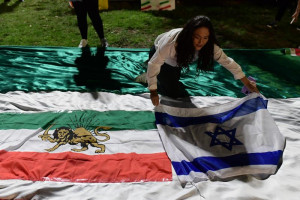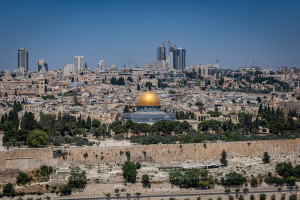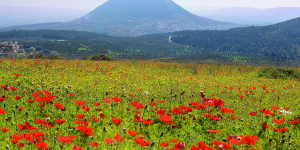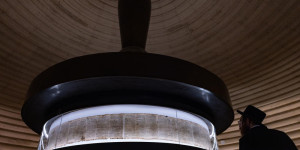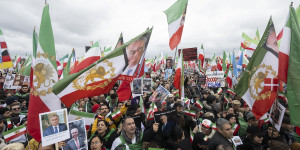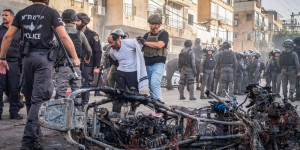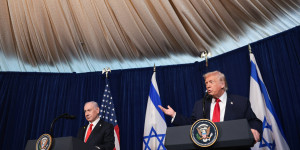Iranians: We were not scared from Israeli attacks – we were cheering for Israel
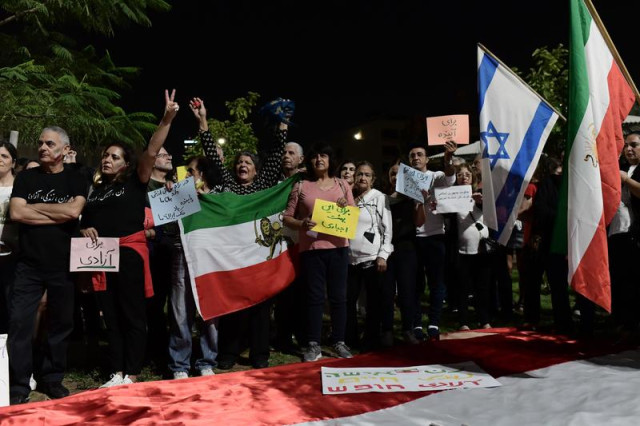
YEREVAN, ARMENIA – Iranian citizens who recently left Iran and found refuge in Armenia said that during the 12-Day War with Israel in June they were hoping the Israeli attacks would destroy the Islamic regime.
“We were not scared from the Israeli attacks. We were praying for Israel,” one Iranian told ALL ISRAEL NEWS. “We were hoping for Israel to win.”
Despite hostile relations between Israel and the Islamic Republic of Iran, many Iranians appear to hold positive sentiments towards Israelis and Jews.
Several Iranians by chance met this reporter who was in Israel during the war in June. The Iranians, now in Armenia, were eager to share through an interpreter their experiences of the war from their side of the border.
They were also astonished to hear what was happening in Israel at the same time. They were largely unaware of the destruction in Israel from the missiles and were shocked to learn that people were running for bomb shelters several times a day. They watched in amazement videos of missiles being intercepted outside a residential building and of one building’s bomb shelter crowded with people during an early morning attack.
“We didn’t have bomb shelters – only our houses,” one of the Iranians observed.
One Iranian corrected the use of the name “Iran” as a synonym for the current regime – “It’s the Islamic Republic, not Iran or Iranians,” insisting that the government does not represent the people.
A man told of living in a neighborhood with Jews, Christians and Muslims where no one differentiated or discriminated between the religious groups: “We are all Iranian.”
“There were more synagogues and churches than mosques in my town,” he told ALL ISRAEL NEWS.
While none of this can be independently verified for this article, the sentiment expressed in Yerevan echoed reports that emerged on unofficial channels from Iran whether on social media, news outlets and from ex-pats who got information from family members and followed posts in Persian. Hopes seemingly ran high among many Iranians that the war would lead to a regime change, according to the various reports.
In June, Israel struck key military and nuclear targets in Iran and the Islamic Republic launched more than 550 ballistic missiles and over 1,000 suicide drones at civilian population centers in Israel.
The war ended abruptly and left Iranians worse off that than they were before. The nation is now suffering from a debilitating drought and water – even bottled – is being rationed.
There are also rumblings of a rebellion among military leaders. Videos of soldiers defiantly holding the former Iranian flag or speaking out against the government have been circulating on the internet, but the veracity and extent of this movement could not be verified. In one video, Iranian Air Force Colonel Col. Ebrahim Aghaie Komazani called for a “million-strong march on Nov. 16."
Authorities announced the arrest of two men who appeared in a separate video dressed in military uniforms and carrying the previous Iranian flag. The regime alleges they were not military but rather abused the uniform.
Ironically, the Islamic Republic and Armenia – the world’s first Christian nation – have diplomatic relations and an open border. Hence, Iranians, especially Christians or converts to Christianity can enter Armenia and from there head to other countries.
But operatives from the Islamic Republic Guard Corps can also access Armenia and infiltrate Iranian ex-pat communities.
No names were used in this article out of concern for the safety of the individuals.
Want to help more people find our reporting from Israel? Leave a quick Google review of our website here.

Nicole Jansezian is a journalist, travel documentarian and cultural entrepreneur based in Jerusalem. She serves as the Communications Director at CBN Israel and is the former news editor and senior correspondent for ALL ISRAEL NEWS. On her YouTube channel she highlights fascinating tidbits from the Holy Land and gives a platform to the people behind the stories.
You might also like to read this:



